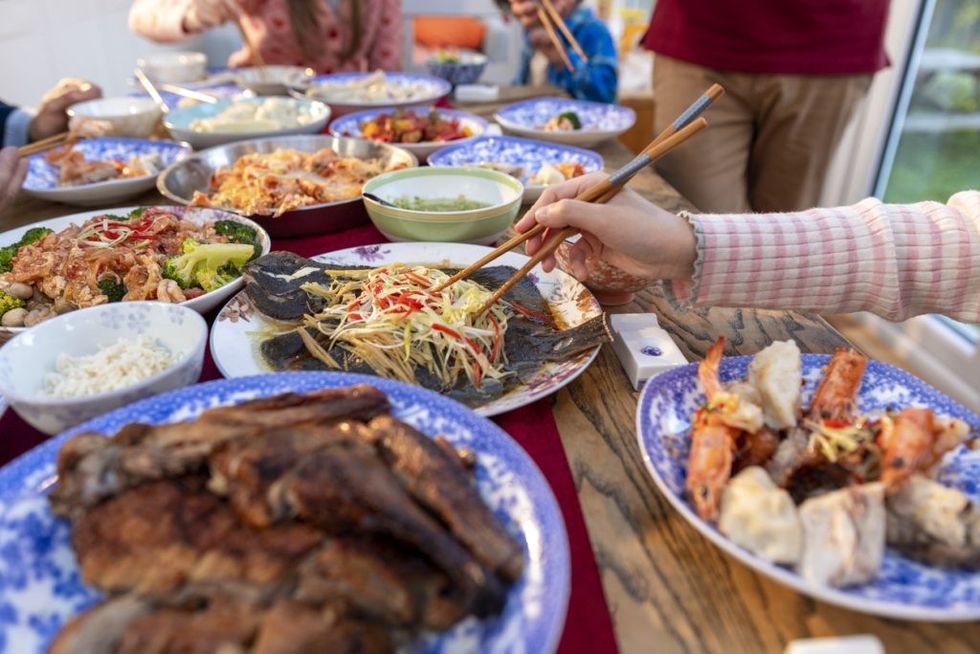As the Year of the Dragon approaches, the vibrant and culturally rich celebration of Chinese New Year is gaining unprecedented popularity on the streets of the UK, which holds one of the biggest Lunar New Year celebrations outside Asia.
This ancient festival, also known as the Spring Festival, marks the beginning of the lunar new year in the traditional Chinese calendar. With its colorful parades, traditional performances, and, of course, delectable cuisine, Chinese New Year has become an integral part of the UK's multicultural tapestry. Convenience retailers, keen to tap into this growing trend, are discovering an undersold opportunity to elevate their sales and engage with an increasingly diverse consumer base.
This year, Chinese New Year falls on 10 February, and celebrations culminate with the Lantern Festival on 24 February, which marks the first full moon of the new lunar year. The UK, home to a significant Chinese diaspora and a growing interest in global cultures, has witnessed a surge in the celebration of Chinese New Year in recent years. Cities across the country, particularly London, Manchester, Liverpool, Edinburgh and Birmingham, host grand parades, cultural events, and vibrant street festivals to mark the occasion. The allure of Chinese lanterns, dragon dances, and the infectious energy of the celebrations have resonated beyond the Chinese community, attracting a diverse audience eager to partake in the festivities.
The Year of the Wood Dragon
Chinese New Year is associated with both elements and animals through the Chinese zodiac system. The Chinese zodiac consists of a 12-year cycle, with each year being represented by a specific animal sign and associated with one of the five elements: Metal, Water, Wood, Fire and Earth. The combination of the animal and element provides a more detailed and nuanced understanding of the characteristics and energies associated with a particular year.
The 12 animals in the Chinese zodiac are: Rat, Ox, Tiger, Rabbit, Dragon, Snake, Horse, Goat (or Sheep), Monkey, Rooster, Dog, and Pig.
According to Chinese legend, the Jade Emperor, the ruler of the heavens, organised a race and invited all the animals to participate. The order in which the animals finished the race determined their position in the zodiac cycle.
The Dragon, which arrives this year, is the only mythical creature in the Chinese zodiac and is considered a symbol of power, authority, and good fortune. The myth presents the Dragon as a compassionate creature, stopping midway to help some villagers and then getting the rabbit safely out of a huge river, without the rabbit knowing, which delayed its arrival despite its ability to fly.
Each animal sign is associated with one of the five elements in a repeating cycle, creating a 60-year cycle before the combination repeats. The dual influence of the animal and element of the year is believed to shape the personality traits, compatibility, and destiny of individuals born during that time.
The culinary connection
One of the driving forces behind the increasing popularity of Chinese New Year in the UK is the near-universal fondness for Chinese cuisine. The aromatic flavors, diverse textures and exotic ingredients of Chinese dishes have captivated the British palate, making Chinese food a staple in households across the nation.

This cultural convergence presents a golden opportunity for convenience retailers to capitalise on the culinary aspects of the Chinese New Year celebration. While supermarkets have traditionally dominated seasonal sales, convenience stores can strategically position themselves as convenient hubs for last-minute purchases, offering a wide range of Chinese ingredients, ready-to-cook meals, and festive decorations.
Here are some merchandising tips to make most of the occasion:
Create Themed Displays: Transform store aisles and end caps into visually appealing Chinese New Year displays. Incorporate traditional red and gold decorations, Chinese lanterns and Dragon-themed signage to create an immersive shopping experience.
Curate Special Chinese New Year Sections: Allocate a dedicated section in-store for Chinese New Year products. This can include a variety of traditional ingredients, pre-packaged meals, and festive snacks. Ensure clear signage and labelling to guide customers to these special sections.
Collaborate with Local Suppliers: Forge partnerships with local Chinese food suppliers to source authentic ingredients and specialty items. Highlight the origin and quality of these products to appeal to customers seeking an authentic Chinese New Year experience.
Offer Ready-to-Cook Meal Kits: Simplify the celebration for customers by providing ready-to-cook meal kits featuring popular Chinese New Year dishes. Include simple recipes and all the necessary ingredients for a hassle-free cooking experience.
Promote World Food Categories: Leverage the popularity of Chinese New Year to raise awareness and sales of the World Food category in general. Showcase a diverse range of international products, allowing customers to explore and experiment with flavors beyond Chinese cuisine.
Social Media Engagement: Utilise social media platforms to promote Chinese New Year-related products, share recipe ideas, and engage with the community. Encourage customers to share their own celebration preparations, creating a sense of inclusivity and community spirit.
In-Store Events and Demonstrations: Host in-store events or cooking demonstrations showcasing Chinese New Year recipes. This not only educates customers on the preparation of traditional dishes but also provides an interactive and enjoyable shopping experience.
It's time for retailers to embrace the cultural vibrancy and gastronomic delights of Chinese New Year, turning this annual celebration into a golden opportunity for growth and community connection, imbibing the spirit of Dragon.


